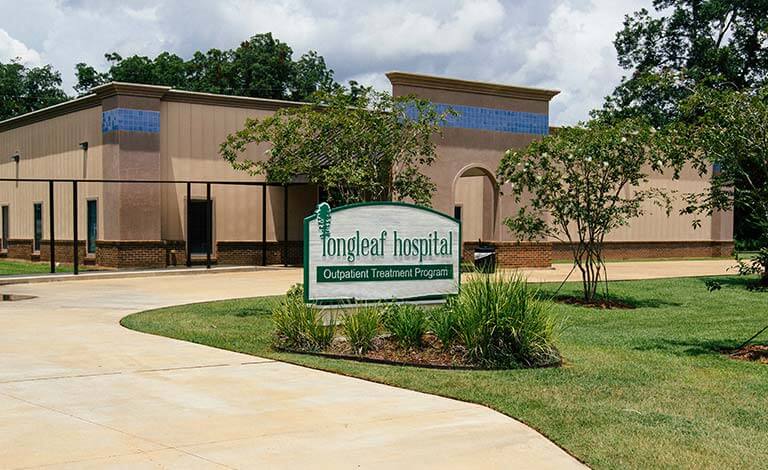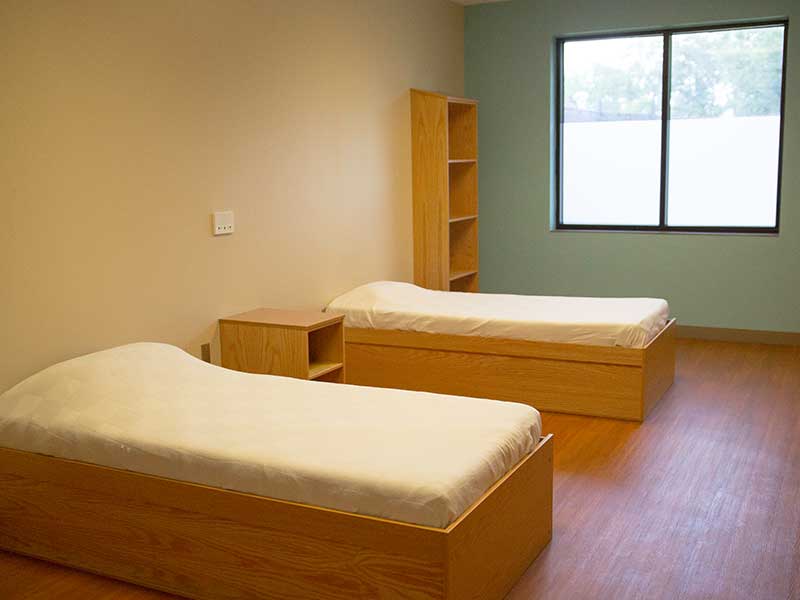Psychosis, a debilitating mental and emotional state, is a key feature of a group of mental health conditions known collectively as psychotic disorders.
Understanding Psychosis
Learn about psychosis
Symptoms of these conditions are severe and alter a person’s ability to think clearly, make good judgments, respond emotionally, communicate effectively, understand reality, and behave appropriately.
Individuals experiencing psychosis have challenges staying in touch with reality and are usually unable to meet the demands of activities of daily living. A psychotic state, or psychosis, is a set of experiences that can be described as the loss of contact with reality, but not in a way that is a part of a person’s religious or cultural beliefs and traditions.
Psychosis, while not a specific illness, is a very important indicator of the presence of a psychotic disorder that will require professional intervention and residential treatment. This experience can take many forms, and the severity of the symptoms will vary for each affected individual.
Statistics
Psychosis statistics
The percentage of people who experience psychosis at any one time varies tremendously across countries and cultures, ranging from 0.66% in Vietnam to 45.84% in Nepal. But in sum, about 1% of the world’s population suffers from psychotic disorders, reportedly affecting men and women equally. Generally, people who have psychotic disorders experience their first episode between the ages of 18 and 24. While it is quite rare, some adolescents can display early symptoms of psychosis, which usually indicates that a psychotic disorder will develop later in life.
Causes and Risk Factors
Causes and risk factors for psychosis
With the exception of medical or substance-induced psychosis, the specific cause for a psychotic disorder remains unknown. Most researchers agree that a combination of genetics, physiological characteristics, and environmental causes likely work together to cause the onset of a psychotic disorder. Some of the most common causes for psychotic disorders and accompanying psychosis may include:
Genetic: While a specific gene has yet to be isolated, it is well-accepted that most psychotic disorders have a hereditary component. People who have a parent or sibling with a psychotic disorder or related mental illness are at increased risk for developing psychotic disorders. Additionally, imaging studies performed on the brains of those who have psychotic disorders indicate that there are subtle differences in the structure and function of the brain of those who are suffering from this type of mental illness.
Environmental: Psychotic episodes are often brought about by a life stressor so great that it causes a person to enter psychosis. This response may be as the result of triggering a chronic but dormant problem like physical or sexual abuse.
Risk Factors:
- Tobacco, marijuana, alcohol and other substance abuse
- Prenatal exposure to infectious agents
- Exposure to environmental toxins
- Having certain mental health conditions such as bipolar disorder, schizophrenia, or depression
- Social isolation
- Poverty
- Lack of support system
Signs and Symptoms
Signs and symptoms of psychosis
When a person is struggling with psychosis, his or her emotions, behavior, and inner thoughts will change tremendously. The precise symptoms of psychotic disorders will vary from person to person, but based upon genetic makeup, life experiences, and the underlying cause for the disorder. The experience of psychosis may include:
Behavioral Symptoms:
- Decreased ability to maintain a normal routine
- Worrisome drop in job performance or academic grades
- Frequent absences from work or school
- Increasing amount of time spent alone
- Catatonia – rigid, unresponsive behavior while awake
- Decline in ability to care for self
- Blunt affect
- Self-harm
- Suicidal thoughts and behaviors
- Violent behaviors
- No longer participating in activities that were once enjoyed
Physical Symptoms:
- Loss of appetite
- Notably disheveled appearance
- Increased sensitivity to sounds or sights
- Changes in sleep schedule – sleeping more or less than normal
Cognitive Symptoms:
- Feeling of being controlled by outside forces
- Paranoid thinking
- Preoccupation
- Delusions
- Hallucinations
- Unusual or very intense new ideas
- Trouble remembering simple tasks
- Depersonalization – intense feelings of being outside of oneself
- Disorganized thinking
- Neologisms – making up new words without a meaning
- Sudden inability to concentrate
Psychosocial Symptoms:
- Anxiety
- Depression
- Agitation
- Anhedonia – inability to feel pleasure
- Mistaking noises for voices
- Loss of interest in peers
- Social withdrawal
- Not trusting others / suspiciousness
- Trouble relating to the environment
Effects
Effects of psychosis
The long-term effects of psychosis will vary tremendously based upon an individual’s makeup, the underlying cause of the psychotic episode, and the severity of the symptoms experienced. However, because they can endanger the affected individual and others, all bouts of psychosis should be treated as medical emergencies. When left untreated, psychotic episodes may result in the following:
- Declined ability to care for oneself
- Developing an addiction to drugs and/or alcohol
- Homelessness
- Joblessness
- Interaction with the legal system
- Loss of important relationships
- Physically harming someone else
- Engaging in self-harming behaviors and suffering the consequences of those behaviors
- Chronic suicidal ideation
- Making repeated attempts at committing suicide
Co-Occurring Disorders
Psychosis and co-occurring disorders
Psychosis is the result of the presence of certain mental or physical health conditions, the most common of which are listed below:
- Schizophrenia
- Schizoaffective disorder
- Schizophreniform disorder
- Brief psychotic disorder
- Delusional disorder
- Folie à deux (shared psychosis)
- Psychosis due to substance abuse
- Psychosis due to a medical condition
- Postpartum psychosis
- Major depressive disorder
- Bipolar disorder












